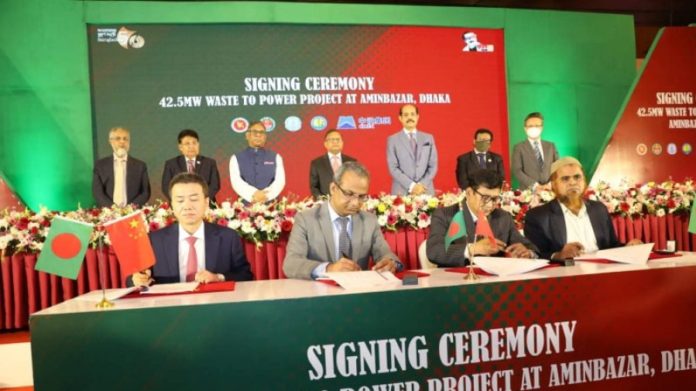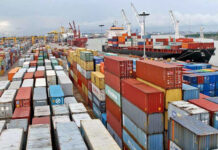For the first time in the country, a waste-to-energy plant is going to be built which will produce electricity from waste. China Machinery Engineering Corporation (CNEC) will build the power plant on 30 acres of land owned by Dhaka North City Corporation (DNCC) at Aminbazar in Dhaka. The Power Development Board (PDB) signed an agreement with the Chinese company at a five-star hotel in Dhaka on Wednesday (1 December). It was signed by PDB Secretary Saiful Islam Azad and DGM Wang Peng Fai of CNEC’s Third Complete Plant Division.
Construction of the 42.5 MW power plant at Aminbazar will cost Tk 2,800 crore. In terms of size, it will be the largest waste-to-energy plant in South Asia. The DNCC will supply 3,000 metric tons of waste per day.
The production cost per unit in the power plant will be 18 Taka and 29 paisa. CNEC will supply electricity from the plant for 25 years.
At the signing ceremony Md. Tajul Islam, Local Government, Rural Development and Cooperatives Minister, said, “Once the power plant is set up, proper management of waste in a part of Dhaka city will be ensured. We want to keep the city clean. It will be possible to provide better services to the people of the city.”
State Minister for Power, Energy and Mineral Resources Nasrul Hamid mentioned that the waste-to-energy power plant is being set up based on a directive issued by Prime Minister Sheikh Hasina in 2015.
The State Minister called upon all city corporations and municipalities of the country like DNCC to implement new initiatives to generate electricity from waste. In his words, ‘Gazipur, Mymensingh, Chittagong and Dhaka South are also being considered for construction of such power plants. Public transport runs on electricity all over the world. We have that plan too. The power lines will go underground in the next three years. Work has already started in Uttara, Mirpur and Purbachal. Electricity and gas lines cannot be used for commercial purposes if they are placed in residential areas. If that is done, the connection will be cut off.’
It was informed on the occasion that the project was approved at the meeting of the Cabinet Committee on 12 November 2020. The plant is expected to be operational within the next two years.




